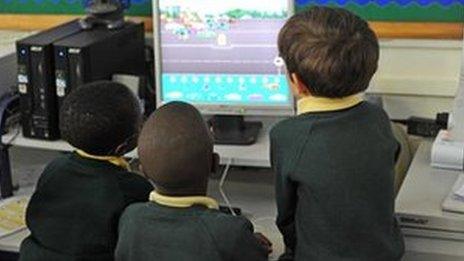Primary pupils' results edge upwards
- Published
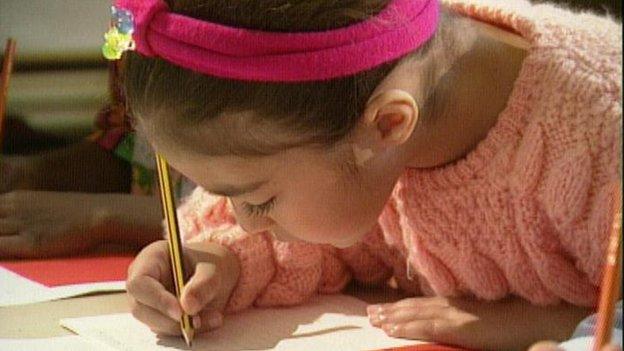
This year some 580,000 children took the tests in May
The performance of children in England in tests at the end of primary school has edged upwards, the government has announced.
More pupils than ever have achieved the literacy and maths scores needed for secondary school, according to figures, external from the Department for Education
Four out of five pupils got good grades in all the tests, says the DfE.
However, Schools Minister Nick Gibb said schools in some council areas had performed poorly.
May tests
The results of this year's tests, taken in May by all 11-year-old state school pupils, show a one percentage point rise in those meeting the standard in mathematics (to 87%) and two percentage points in writing (to 87%).
There was a four percentage point rise in scores in the grammar, punctuation and spelling test (to 80%), while attainment in reading was unchanged on the year before, with 89% meeting the expected standard.
The government says 80% of pupils achieved the required "Level Four" standard or above in all subjects, compared with 78% in 2014 and 62% in 2009.
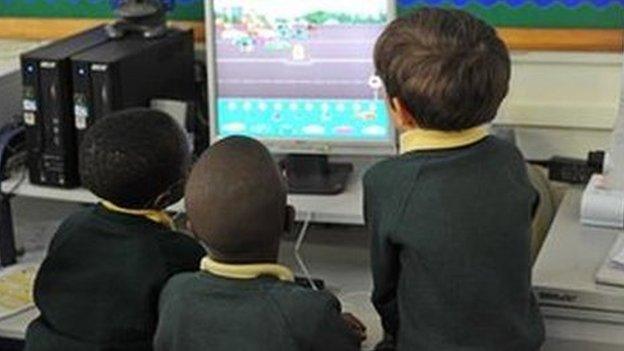
The tests are due to be replaced next year to reflect changes to the curriculum
'Crack-down'
But Mr Gibb said schools in some local authority areas were still not doing well enough.
He announced a "crack-down" on councils, including Medway, Poole, Luton, Doncaster and Bedford, whose schools had performed poorly.
In these areas 73% of pupils achieved the required standard in all subjects, compared with in Kensington and Chelsea, the strongest performing area, where 90% of pupils met the grade.
Mr Gibb said the government was "committed to driving up standards as a matter of social justice".
"That is why I will be writing to the director of children's services and directors of education of councils that are bottom of the league tables and asking that they meet me as a matter of urgency to explain how they intend to improve the teaching of reading and arithmetic in the primary schools under their control," he said.
Overall, Mr Gibb said, he was "delighted that 90,000 more children are starting secondary school with a firm grasp of the basics compared to just five years ago".
In particular he highlighted improvements in sponsored primary academies, which have taken over some of the most seriously underperforming schools.
Sponsored academies that had been open a year saw a rise of five percentage points (to 71%) over the schools they replaced, the statistics suggest.
"These results vindicate our decision to expand the valuable academies programme into primary schools with thousands of children on course to receive a better education," he said.
"Our reform programme is driven by social justice, and we will continue to raise the bar so young people are prepared to succeed in modern Britain."
This year, some 580,000 primary pupils took the tests, but this is the last year these tests will be used.
From next summer, pupils will be assessed on a "tough" new national curriculum, which came into effect in September 2014, and will be given a scaled score where 100 will represent the expected standard.
- Published25 February 2015
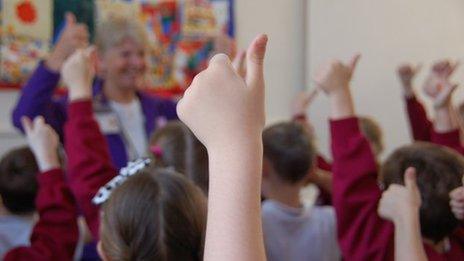
- Published8 April 2015
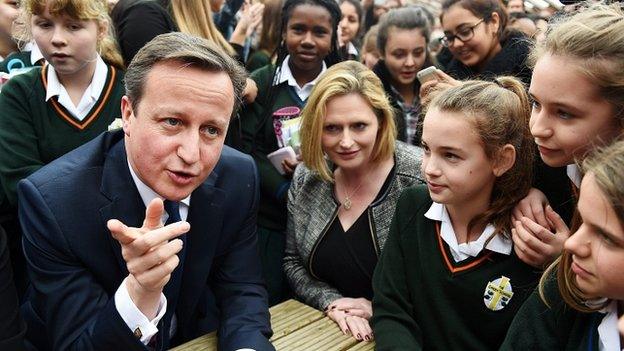
- Published27 March 2014
